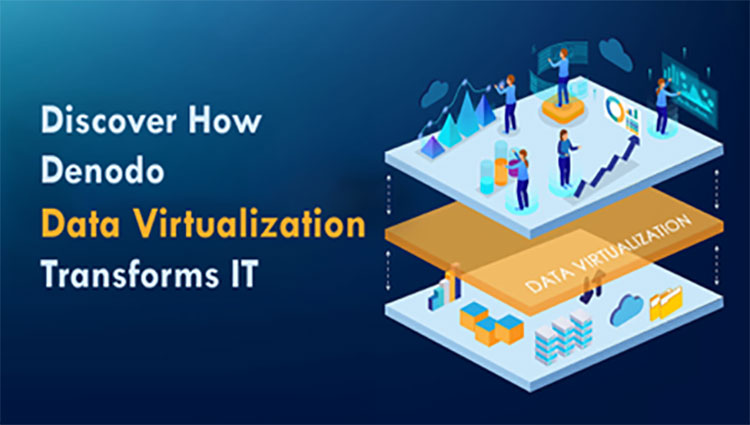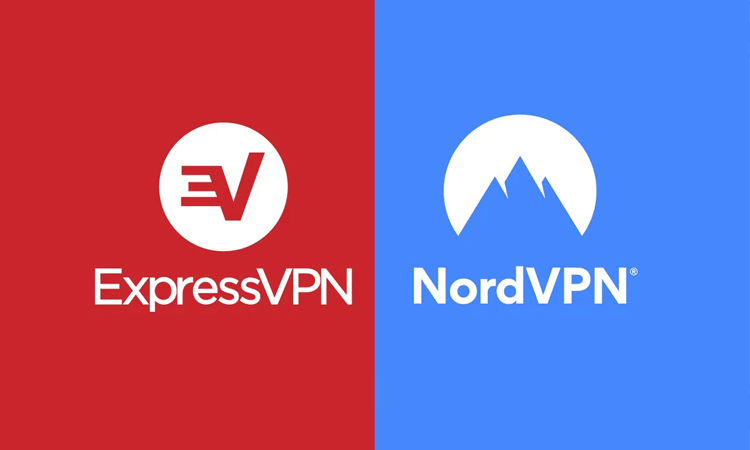Data virtualization is becoming an increasingly popular technology, due to its ability to improve business performance and reduce costs. Denodo Data Virtualization is a powerful tool that can help IT departments transform their processes and operations in a variety of ways. In this article, we will explore the key benefits of Denodo Data Virtualization and how it can be used to simplify data management, improve performance, increase agility, and reduce infrastructure costs.
What Is Denodo?
Denodo is a data virtualization platform that allows IT teams to access and manage data from multiple sources in real-time. By creating a virtualized layer on top of disparate data sources, Denodo enables users to easily discover, access, and manipulate the data they need without having to physically move it. This means that organisations can significantly reduce their time-to-insight by providing faster access to up-to-date information.
One of the key features of Denodo is its ability to connect with a wide range of data sources including databases, cloud applications, web services, and more. The platform also includes built-in connectors for popular business intelligence tools such as Tableau, Power BI, and QlikView. This makes it easy for businesses to integrate their existing BI tools with Denodo and get started with data virtualization immediately.
Overall, Denodo provides IT teams with an efficient way to manage complex data environments while reducing costs associated with traditional ETL processes. By eliminating the need for expensive hardware or software upgrades, businesses can save both time and money while still gaining valuable insights from their data.
Benefits of Denodo Data Virtualization
The benefits of Denodo data virtualization are numerous and can greatly impact IT departments. One key advantage is the ability to integrate data from various sources without the need for physical movement or replication, saving time and resources. This also allows for real-time access to the most current data without delays caused by traditional ETL processes.
Another benefit of Denodo data virtualization is its ability to provide a unified view of disparate data sources, making it easier for organisations to gain insights and make informed business decisions. With Denodo’s easy-to-use interface, users can quickly search and analyse data from multiple sources in one place.
Finally, Denodo data virtualization offers enhanced security features such as centralised authentication and access control, helping organisations comply with strict regulatory requirements. Overall, implementing Denodo data virtualization can lead to increased efficiency, improved decision-making capabilities, and stronger security measures for IT departments. Get ahead in your career by learning Webmethods Training!
Key Features of Denodo Platform
The Denodo Platform is a data virtualization solution that allows businesses to integrate, manage and deliver data from various sources. One of its key features is the ability to provide real-time access to data from disparate sources such as cloud-based applications, databases, and big data platforms through a unified view. With this feature, organisations can easily access their data without worrying about complex integration processes.
Another feature of Denodo Platform is the ability to provide self-service access to trustworthy information for business users. The platform provides an intuitive interface that enables users to search for and access the relevant data they need, regardless of where it’s stored. This helps in improving productivity by reducing the time required for IT teams to fetch or prepare data requested by other departments.
Denodo also prioritises security with its multilayered security architecture which includes role-based authentication, secure communication protocols and encryption technologies. This ensures that sensitive organisational information is protected against unauthorised access or cyber-attacks, thereby providing peace of mind for businesses using the platform. In conclusion, with innovative features such as these, it’s no surprise why Denodo has become a go-to solution for modern IT organisations looking to optimise their operations through efficient use of their available datasets.
Case Studies: How Companies Are Using Denodo
Case studies have shown that many companies are using Denodo to transform their IT infrastructures. One such company is a leading global logistics provider that needs to integrate data from various systems and databases, including legacy systems, into a centralised platform. With Denodo, they were able to create a virtual data layer that unified the disparate sources of information and provided real-time access for analytics and reporting.
Another example is a large financial services firm that was struggling with managing siloed data across multiple business units. By implementing Denodo’s data virtualization technology, they were able to create a unified view of their customer data while reducing costs associated with maintaining multiple systems. Ultimately, this allowed them to gain insights into customer behaviour and preferences in order to improve the overall customer experience.
Overall, these case studies demonstrate how Denodo’s data virtualization technology can help organisations overcome common challenges related to managing diverse data sources while providing agility and cost savings.
Security and Governance Considerations for Denodo
Denodo Data Virtualization is a powerful tool that allows organisations to access and manage data from various sources in real-time. As with any data management solution, security and governance considerations are critical to ensure the protection of sensitive information. Denodo provides robust security features such as role-based access controls, encryption, and authentication protocols that adhere to industry standards.
To ensure proper governance, Denodo offers features such as data lineage tracking, version control, and auditing capabilities. These features provide administrators with complete visibility into the flow of data within the system and enable them to track changes made by users at every stage of the process.
When implementing Denodo Data Virtualization, it is crucial to evaluate your organisation’s security and governance requirements thoroughly. By taking a proactive approach to security and governance considerations during implementation, you can minimise risks associated with unauthorised access or misuse of sensitive information while maximising the benefits offered by this powerful tool.
Pros & Cons of Data Virtualization with Denodo
Data virtualization has become an increasingly popular solution for organisations looking to streamline their data management processes. One of the leading providers of data virtualization technology is Denodo, which has gained a reputation for its ability to integrate and manage complex data sources across multiple systems.
One key advantage of using Denodo’s data virtualization technology is that it allows organisations to avoid costly and time-consuming data integration projects. By enabling real-time access to disparate data sources, Denodo can help IT teams respond more quickly to changing business needs without requiring extensive manual coding or ETL processes.
However, there are also some potential drawbacks to consider when implementing a data virtualization solution like Denodo. For example, some users may find that the performance of their applications is impacted by the added layer of abstraction introduced by virtualized data. Additionally, security concerns may arise if sensitive information from different sources is being accessed and combined in new ways through a centralised platform like Denodo.
Conclusion:
In conclusion, Denodo data virtualization is a transformative technology that can revolutionise IT infrastructure. This powerful platform allows businesses to access and manipulate data from multiple sources with ease, saving time and improving efficiency. By eliminating the need for traditional data warehousing methods, Denodo simplifies the management of complex data environments.
Furthermore, Denardo’s ability to integrate with existing systems makes it an ideal solution for organisations looking to modernise their IT infrastructure without disrupting current processes. This flexibility ensures that businesses can continue to leverage the investments they’ve made in other technologies while also taking advantage of the benefits of data virtualization.
Overall, implementing Denodo data virtualization can have a significant impact on an organisation’s bottom line by reducing costs associated with managing complex data environments and improving overall business agility. With its robust capabilities and ease of use, this platform is poised to become an essential tool for companies looking to stay ahead in today’s fast-paced digital landscape.



